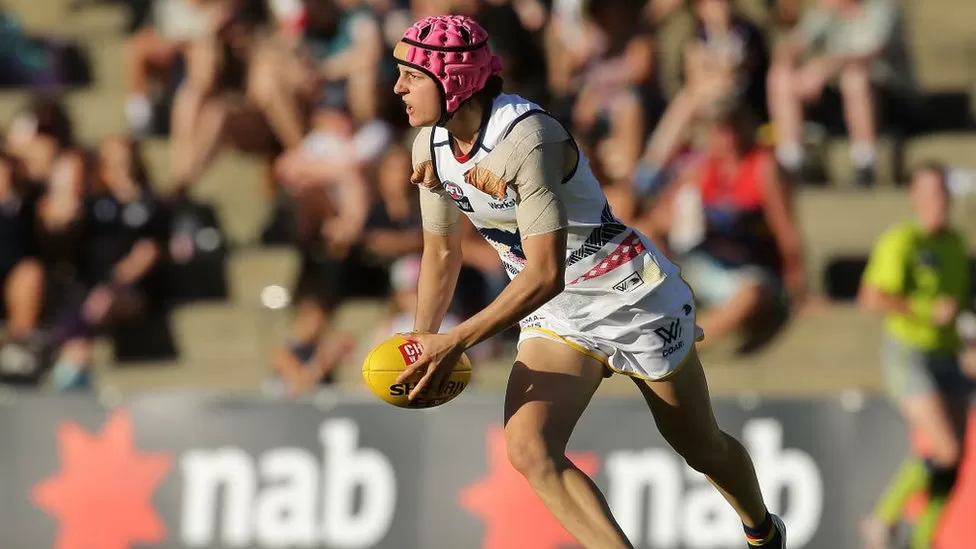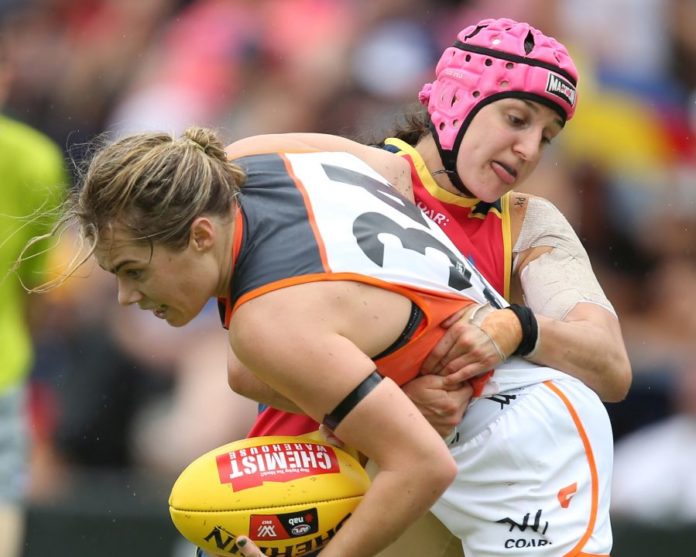Scientists in Australia have diagnosed the world first case of Chronic Traumatic Encephalopathy (CTA) in a professional female athlete. This was unearthed by scientists at the Australian Sports Brain Bank, whose findings were published in the medical journal Acta Neuropathologica.
First female athlete with CTE
Heather Anderson, played for Adelaide in the Australian Football League (AFL) Women’s competition. She reportedly started playing football when she was five-years-old. Anderson went on to play contact sport across two codes – AFL and rugby league – for 18 years. Sadly, she took her own life in November 2022, at the age of 28.
RELATED: Innovating Safety in Rugby: Tackle Height Reviewed
She reportedly sustained several injuries throughout her career, including at least one concussion. Anderson is now the first female athlete diagnosed with CTE, a degenerative disease linked to concussions.
Anderson’s family reportedly donated her brain to the Australian Sports Brain Bank, hoping to better understand her death.
‘A highly significant case study’
CTE can occur after repeated traumatic brain injuries, with or without a concussion, and has up until now only been diagnosed in professional male athletes. However, the rise in women joining contact sports, has placed them at risk to CTE, says neuropathologist Michael Buckland, the paper’s co-author. Some research suggests that female athletes are more vulnerable to sports concussions than men.
“It’s a bit like smoking and lung cancer. Early on lung cancer was enormous in men … and then women took up smoking in equal numbers. Then 20 years later, there was a big surge in women’s lung cancer,” says Buckland, according to CNN.
The scientists say Anderson had three clear lesions on her brain, including parts of the organ responsible for memory, language, behaviour, problem-solving and movement.

‘Women have greater rates of concussion’
Buckland explains that the team found “multiple CTE lesions as well as abnormalities nearly everywhere I looked in her cortex”. He adds that her test was “indistinguishable” from the numerous male cases he has seen.
Neurologist, Alan Pearce, co-authored the report with Buckland. He notes that while “women have greater rates of concussion”, scientists did not have “long-term evidence until now”. “So this is a highly significant case study,” remarks Pearce.
RELATED: OPINION: Ruby tackle changes trigger childhood memories
Lawyers in Australia, who represent dozens of former professional AFL players, have filed a class-action lawsuit against the AFL, seeking compensation for injuries from alleged negligence.
The football body acknowledges the link between head trauma and CTE, and is allegedly working to buffer the risks.


